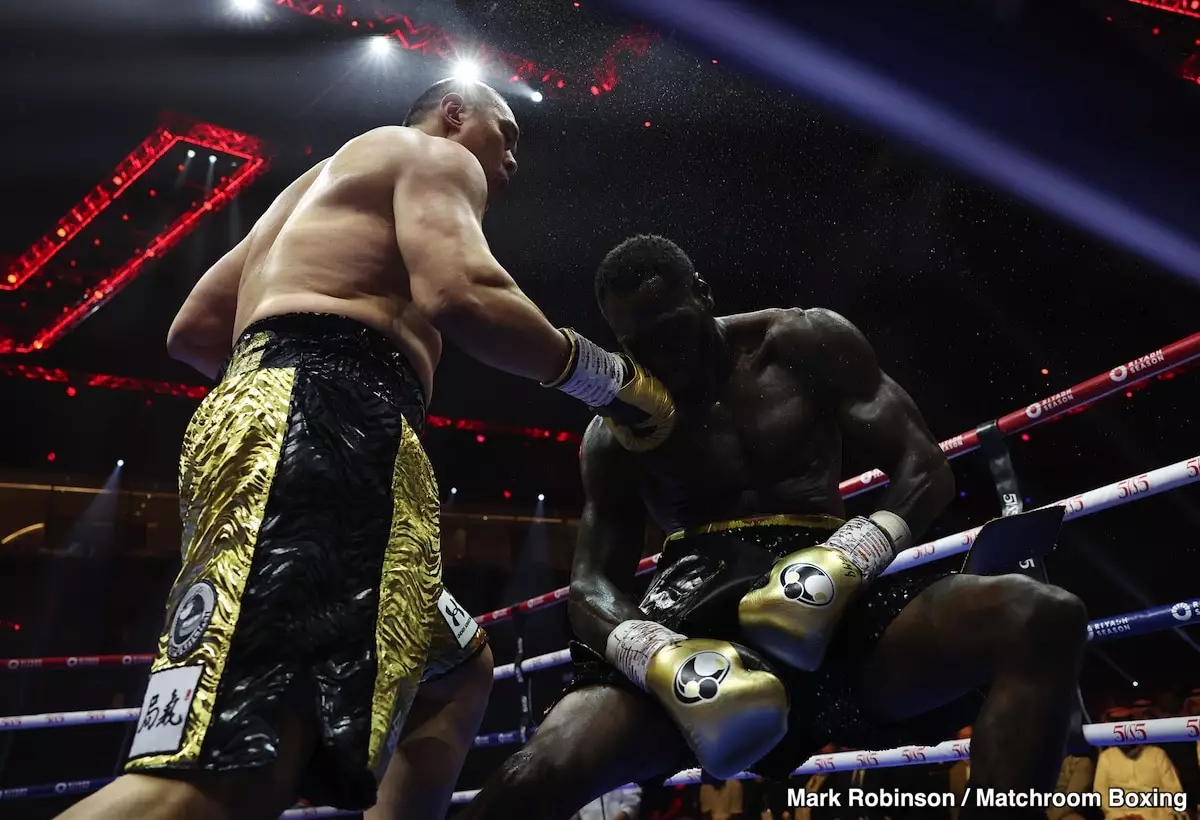Deontay Wilder, once celebrated as the WBC heavyweight champion, now stands on the precipice of uncertainty as he prepares for an essential challenge in 2025. With a career record of 43 wins, 4 losses, and 1 draw, his track record is impressive at first glance. However, the reality is far more complex. Wilder’s recent performance and numerous defeats have fans and analysts alike questioning whether he can reclaim his status in the boxing landscape. Malik Scott, his trainer, suggests that Wilder’s upcoming bout could very well determine the trajectory of his career.
One of the critical factors in Wilder’s current predicament revolves around his wealth. With a net worth estimated at $30 million, the hunger that initially fueled his rise appears to have ebbed. Wilder’s transition from a struggling athlete to a wealthy celebrity has raised concerns about his motivation and drive. Scott has noted that Wilder, now accustomed to a luxurious lifestyle, lacks the fierce determination that characterized his early years in the ring. The lavish lifestyle can undoubtedly create complacency, leading to questions about the fighter’s readiness to endure the grueling demands of high-stakes boxing.
Adding another layer of complexity to Wilder’s situation is the noteworthy shift in his training regimen under Scott. Since the departure of his long-time coach, Mark Breland, Wilder has embraced a new fighting style that diverges significantly from his original, aggressive approach. Critics have questioned the effectiveness of this transition, as Wilder has secured only a single victory in his last five outings. The one match he won against Rober Helenius in 2022 has done little to silence the detractors, particularly in comparison to his disappointing losses against formidable opponents such as Zhilei Zhang and Joseph Parker.
Scott’s coaching philosophy contrasts sharply with Wilder’s natural fighting instincts. The attempt to mold Wilder into a conventional boxer seems to have stifled his raw, explosive power—his primary weapon throughout his career. Observers point out that this transformation has indeed hindered his overall performance, resulting in lackluster outings where he has failed to capitalize on his strengths. Wilder’s recent fight against Parker, characterized by cautious movement and unwillingness to engage, starkly demonstrated the troublesome effects of this stylistic overhaul. In this case, Wilder appeared less like a ferocious contender and more like a fighter expressing uncertainty in the ring.
As Wilder gears up for an essential fight in 2025, the stakes couldn’t be higher. With a cloud of doubt hanging over her, Scott acknowledges that everything counts now more than ever. The pressures of returning to form weigh heavily on both the fighter and his coach. What was once a promising future could quickly spiral into obscurity if Wilder cannot showcase his abilities. His fans await answers, but the onus remains on Wilder himself to decide whether he will rise to the occasion or risk further decline.
Malik Scott’s confidence in Wilder’s potential is unwavering, yet there remains a palpable tension surrounding the fighter’s ability to harness that potential effectively. Can Wilder rediscover the fire that ignited his successful run? Or will the complexities of wealth, aggressive style alterations, and high pressure hinder his performance in the ring? As 2025 approaches, the answer to these questions will not only shape Wilder’s legacy but also reverberate through the boxing world, reminding us that the path of a champion is often fraught with unexpected challenges.

